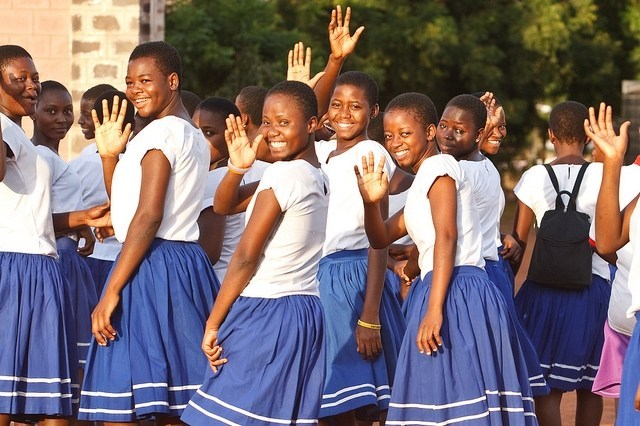Chapter One: As Ghana embarks on a review of its Senior High School Curriculum –
My Initial Thoughts
This is the first of a series of thought-provoking write-ups that I will be sharing with the public on my conviction that we can use education to produce the kind of citizens we desire for the future. One of the compelling ways to achieve that is through curriculum reforms.
Mastercard Foundation in July 2020 released a research report on Secondary Education in Africa. in that report, the researchers sought to find out the role of secondary education in ensuring that the youth acquire the skills, knowledge, and competencies necessary to succeed in a dynamic and globalized labour market which now puts a premium on digitalization and automation. The report indicated that despite progress, many youths in Sub-Saharan Africa currently lack the foundational, digital, and 21st-century skills needed to succeed in a changing world of work. The World Bank reports that fewer than 20 percent of students meet minimum proficiency requirements in reading and math during late primary, well below scores in other regions (World Bank, 2018). Also, the report advocated for the provision of flexible pathways for the youth in their education. It recognizes that there are diverse young people pursuing education and hence there should be flexibility in how they progress paying attention to their capabilities. The final highlight for me in the report is on ensuring that the youth receive relevant knowledge and skills for the future. It emphasises that employers in both the formal and informal sectors increasingly demand workers with 21 -century skills such as critical thinking, communication, creative problem solving, resilience, and teamwork. Secondary education in Africa should seek to address these challenges.
This report is worth analysing especially in Ghana. This is because we are in a period of curriculum reforms. We have implemented the Standard-Based Curriculum at Kindergarten to Basic 6 (despite some challenges), we are implementing the Common Core Programme at the Junior High School level, and have kick-started the process of reviewing the secondary school curriculum. This puts Ghana in a pole position to ensure that we use this opportunity to address some of the challenges facing secondary education in the country.
The developers of various educational reforms envisioned two exit points for graduates of secondary education in Ghana. The graduates are either to enter the world of work or continue to tertiary institutions. It is not far-fetched that the current state of our secondary education does not prepare the students for the world of work. On average, 50% qualify to enter tertiary institutions while between 18% to 21% enroll in various tertiary institutions. It is imperative to also note that reports from our tertiary institutions suggest that most of the applicants have problems with numeracy and literacy. This has even necessitated the National Teaching Council (NTC) to propose the institution of an entrance examination in numeracy and literacy at the various colleges of education. The icing on the cake is the mode of assessment which focuses more on the cognitive domain and places less emphasis on other domains. This mode of assessment has resulted in the implementation of a tested curriculum instead of the formal or written curriculum which is supposed to focus on the total development of the student. It also has led to the introduction of teaching methodologies that promotes memorization at the disadvantage of other progressive pedagogies such as practice-based, problem-oriented, and project pedagogies.
These challenges enumerated calls for a different kind of curriculum for the SHS. In this era of curriculum review, it will be important to include 21st-century skills, focus on numeracy and literacy, promote differentiation and remedial teaching and pay attention to the sequencing of content while integrating cross-cutting issues in the SHS curriculum. We need a document that can truly address the lack of lifelong learning and inadequate preparation of the students for the world of work. To achieve this, the developers of the curriculum should be receptive to ideas from experts and continue to engage broadly during this period.
Chapter Two will look at “The Ghanaian Secondary School Graduate I would love to see”. Anticipate.
By Peter Anti, IFEST – Ghana
Source: Ghana/starrfm.com.gh/103.5FM




